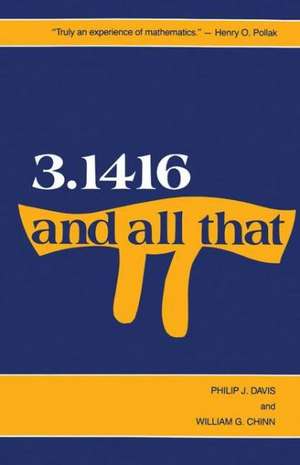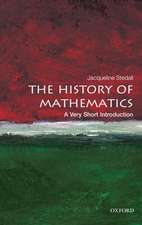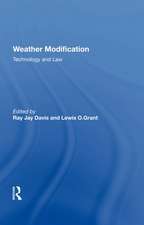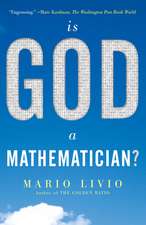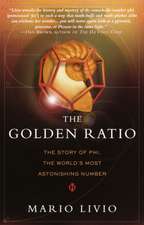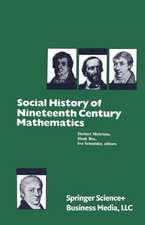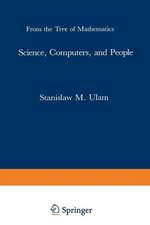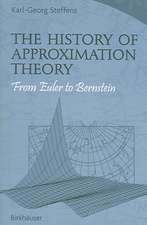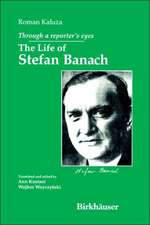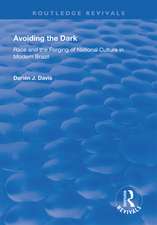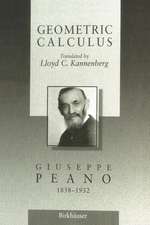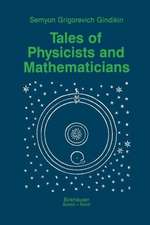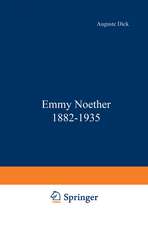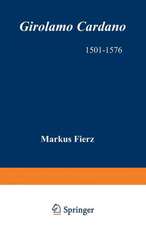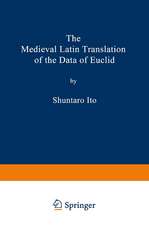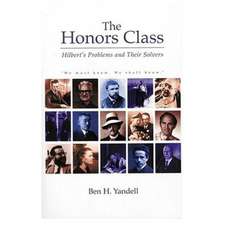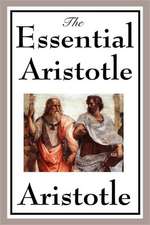3.1416 And All That
Autor Davis, CHINNen Limba Engleză Paperback – 20 iul 1987
Preț: 443.02 lei
Preț vechi: 553.77 lei
-20% Nou
Puncte Express: 665
Preț estimativ în valută:
84.78€ • 92.06$ • 71.22£
84.78€ • 92.06$ • 71.22£
Carte tipărită la comandă
Livrare economică 18-24 aprilie
Preluare comenzi: 021 569.72.76
Specificații
ISBN-13: 9780817633042
ISBN-10: 0817633049
Pagini: 188
Dimensiuni: 140 x 216 x 11 mm
Greutate: 0.24 kg
Ediția:2nd ed. 1985
Editura: Birkhäuser Boston
Colecția Birkhäuser
Locul publicării:Boston, MA, United States
ISBN-10: 0817633049
Pagini: 188
Dimensiuni: 140 x 216 x 11 mm
Greutate: 0.24 kg
Ediția:2nd ed. 1985
Editura: Birkhäuser Boston
Colecția Birkhäuser
Locul publicării:Boston, MA, United States
Public țintă
ResearchDescriere
LYTTON
STRACHEY
tells
the
following
story.
In
intervals
of
relaxation
from
his
art,
the
painter
Degas
used
to
try
his
hand
at
writing
sonnets.
One
day,
while
so
engaged,
he
found
that
his
in
spiration
had
run
dry.
In
desperation
he
ran
to
his
friend
Mallarme,
who
was
a
poet.
"My
poem
won't
come
out,"
he
said,
"and
yet
I'm
full
of
excellent
ideas.
"
"My
dear
Degas,"
Mallarme
retorted,
"poetry
is
not
written
with
ideas,
it
is
written
with
words.
"
If
we
seek
an
application
of
Mallarme's
words
to
mathematics
we
find
that
we
shall
want
to
turn
his
paradox
around.
We
are
led
to
say
that
mathematics
does
not
consist
of
formulas,
it
consists
of
ideas.
What
is
platitudinous
about
this
statement
is
that
mathe
matics,
of
course,
consists
of
ideas.
Who
but
the
most
unregenerate
formalist,
asserting
that
mathematics
is
a
meaningless
game
played
with
symbols,
would
deny
it?
What
is
paradoxical
about
the
state
ment
is
that
symbols
and
formulas
dominate
the
mathematical
page,
and
so
one
is
naturally
led
to
equate
mathematics
with
its
formulas.
Cuprins
1.
The
Problem
That
Saved
a
Man’s
Life.-
2.
The
Code
of
the
Primes.-
3.
Pompeiu’s
Magic
Seven.-
4.
What
Is
an
Abstraction?.-
5.
Postulates—The
Bylaws
of
Mathematics.-
6.
The
Logical
Lie
Detector.-
7.
Number.-
8.
The
Philadelphia
Story.-
9.
Poinsot’s
Points
and
Lines.-
10.
Chaos
and
Polygons.-
11.
Numbers,
Point
and
Counterpoint.-
12.
The
Mathematical
Beauty
Contest.-
13.
The
House
That
Geometry
Built.-
14.
Explorers
of
the
Nth
Dimension.-
15.
The
Band-Aid
Principle.-
16.
The
Spider
and
the
Fly.-
17.
A
Walk
in
the
Neighborhood.-
18.
Division
in
the
Cellar.-
19.
The
Art
of
Squeezing.-
20.
The
Business
of
Inequalities.-
21.
The
Abacus
and
the
Slipstick.-
22.
Of
Maps
and
Mathematics.-
23.
“Mr.
Milton,
Mr.
Bradley—Meet
Andrey
Andreyevich
Markov”.-
24.
3.1416
and
All
That.-
Ancient
and
Honorable
Society
of
Pi
Watchers:
1984
Report.
